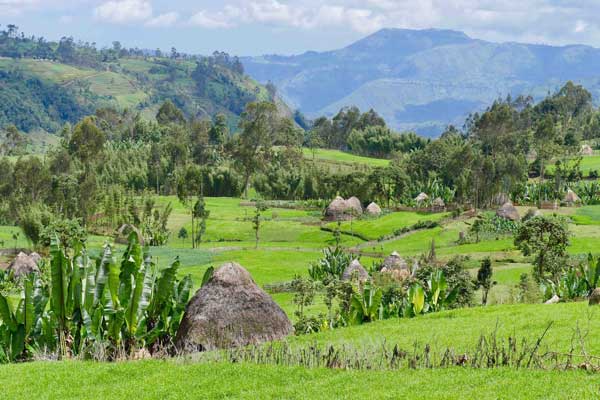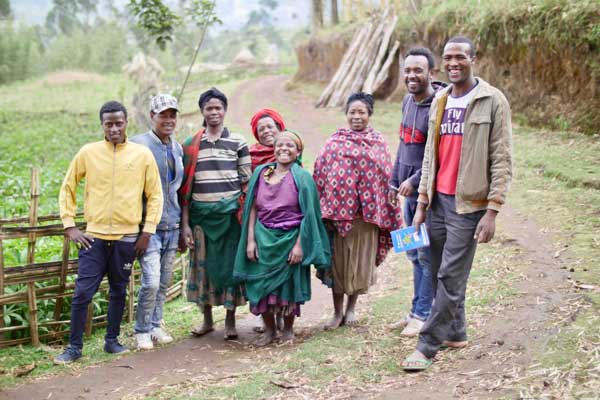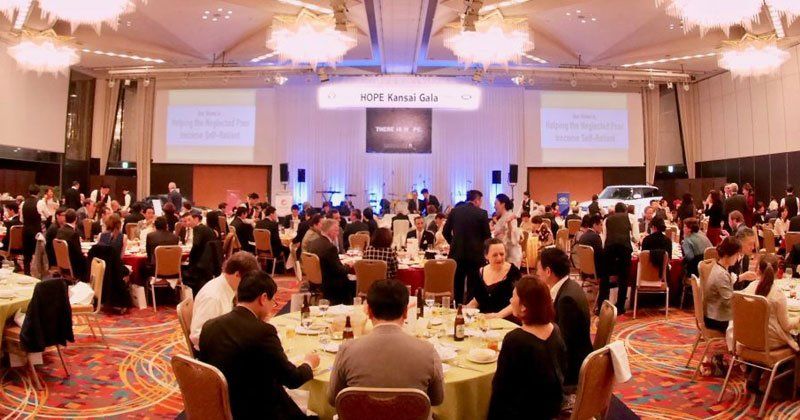Memoirs of a HOPE Volunteer in Ethiopia
HOPE-JP • November 20, 2019
2 years in the field of international cooperation
HOPE’s project sites are like a forgotten world
“Helping the Neglected Poor to become Self-Reliant”
This is HOPE’s mission statement, and our mission. The word “neglected” implies being “disregarded or ignored”. HOPE has been working to reach such communities in neglected parts of the world, and Bonke Woreda in southern Ethiopia is just such an isolated region.
Situated approximately 3,000m above sea level, Bonke Woreda can get chilly even in the daytime, and you can easily run out of breath by walking to the farthest villages on the border of the district. This area has no electricity, gas, water or roads, or any other form of infrastructure, and hardly anyone uses the internet. Many locals live in traditional thatched huts, most of whom are farmers who grow barley and potatoes. While many villagers sell their farm produce at the local markets, the average annual family income is 16,000 yen, which is at subsistence levels of living.
Living and working with the local communities
In January 2018, I came to live in such a village.
HOPE always dispatches several people, mostly local staff, to the project site where they base themselves when implementing projects in Ethiopia. HOPE’s local staff first pays a visit to the village office, meets with the village leaders, and seeks permission to establish a base camp in the village. I also sought permission and was allowed to setup my own tent near the government office. After having setup my tent, and secured my sleeping bag, and a small (but very important!) solar panel for my two years, I went around to greet my neighbours. It’s important to note that HOPE works with our trusted partners – we keep outside presence and interference to a minimum.
I learnt from the villagers that they’ve heard rumours about HOPE for some time and that they’ve been expecting us. The local communities welcomed us, and then later at night, we were treated to a goat as a welcome gift from the village office! The goat was immediately slaughtered and we were served ‘Dorsa Kort’ or raw mutton, which is the village’s highest mark of hospitality. Accompanying this meat dish was ‘Gabula’, which is ground barley rolled into balls. To eat raw meat in a remote mountain village with no infrastructure required a lot of courage, but I couldn't deny the village leader this dish which he served himself, so I prayed that my stomach would survive this ordeal.
In principle, the life of a project is two years. There are many things to do within this period which include the construction of a simple water supply system, the construction of public toilets at schools and health posts, and the creation of a management system to maintain the facilities, technical training for carrying out repairs, and hygiene and sanitation education through household visits.
A wide range of activities are required on site, from construction to technical training, but there is an important component that brings everything together, that is, the trust between the local communities and HOPE.
What you can learn by living among the locals
A lot of manpower is required for development work in remote areas where access by vehicles is difficult. For example, carrying construction materials to the construction site requires manpower, and secondly, it is impossible for the few HOPE staff members to visit each household every day in a community whose population numbers in the several thousands. In creating awareness on hygiene and sanitation, and in providing technical guidance, nothing will start without the active participation and cooperation of the villagers.
That is why a relationship of trust between HOPE and the community greatly determines the success of a project. And that is why, despite the difficult living environment, HOPE staff are stationed in the villages of the project site, and live and work together with the local communities.
In communities where there is no internet, no access to social media, where even mobile phones are not common, it is necessary to build trusting relationships through real dialogue. Despite their familiarity with our organization, we are first and foremost outsiders and therefore its crucial to build trust from the start. If we don’t gain their trust by living amongst them, our work will end there and then.
And, apart from gaining the villagers’ trust, by living in their village, we need to identify what they really need on the ground. Many of the villagers have lived in the same village for generations and continue to live lifestyles that have not changed much. At times I realized that the villagers have different values, and at other times, I learnt that what I thought they needed was not necessarily true. It's important for organizations such as ours to ascertain on the ground what the villagers truly need to become self-reliant, and to learn to provide for those needs. Sometimes the actions I took based on my assumptions of the villagers needs led to unexpected pitfalls, and furthermore could have harmed the local culture and life, or could have created a mentality of dependency as opposed to becoming self-reliant.
For instance, in the communities where I was assigned, the lack of access to clean water was a major barrier to the development of the village. However, having lived in the village, and having seen other villages, I understood that apart from constructing water supply systems, it was more important to create a system to manage the water supply facilities.
No matter how durable the water supply facilities are built, damages cannot be avoided. And there are no plumbers or technicians a phone call away who can rush over from the city.
Thus HOPE stays on site for 18 months apart from the 6 months it takes to construct the water supply system. In these 18 months, HOPE provides support in helping the local communities establish a committee to manage and maintain the water system, to create a system of collecting water usage fees, to provide guidance in building a budget for maintenance in the future, to supervise and impart knowledge on conducting repairs, and in creating connections with government administrative offices for support in the future. It is essential for HOPE’s projects that the villagers understand the importance of organizing and managing the system, and to become independent and proactive in sustaining this system.
Not "Thank you for building the system.", but "I'm glad I was able to work with you."
What I learned in the village while watching the project unfold was that no matter how much money is spent, no matter how good the project plan, it means nothing unless there is mutual understanding with the local communities.
Only when HOPE understand the real needs of the local communities, whereupon the development project is accepted by the villagers, will it then lead to the full proactive participation of the locals. This is when the villagers come to understand that they are not just beneficiaries but active participants who helped build the system, not just benefiting from a water system built by for them but a water system that they should maintain and protect.
I think it would be great to run a project where upon leaving the site after its completion, the villagers instead of thanking us, would instead see us off by affirming their commitment to sustain our work into the future. After two years of life living with the locals, rather than having a top-down relationship of us as providers and them as beneficiaries, I would like to think that we consider each other as partners working together.
Note: HOPE Japan staff assignments in Ethiopia that assure funds are properly allocated and efficiently implemented toward project outcomes are a requirement of international finance institution compliance, in this case the Ministry of Foreign Affairs of Japan. HOPE Japan monitoring is a grant allocation and does not dilute general funds effectiveness or designated purpose.
















